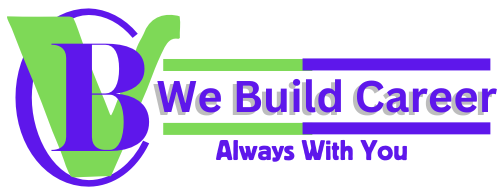
- Description
- Curriculum
- Reviews
Course Outline: Office Administration Interview Preparation
Module 1: Introduction to Office Administration
- Overview of Office Administration Roles
- Key Responsibilities and Skills
- Understanding the Office Environment
Module 2: Common Interview Questions and Answers
- Tell me about yourself.
- Tips: Focus on relevant experience and skills.
- Sample Answer: “I have over 5 years of experience in office administration, where I have honed my skills in managing schedules, coordinating meetings, and handling office communications.”
- What do you know about our company?
- Tips: Research the company’s history, mission, and recent news.
- Sample Answer: “Your company’s commitment to sustainability and innovation is impressive. I am particularly drawn to your recent project on eco-friendly office solutions.”
- Why do you want to work here?
- Tips: Align your career goals with the company’s objectives.
- Sample Answer: “I am passionate about efficient office management and your company’s dedication to employee development aligns with my career goals.”
- What are your strengths and weaknesses?
- Tips: Be honest but strategic.
- Sample Answer: “My strengths include excellent organizational skills and attention to detail. A weakness is that I can be overly meticulous, but I am working on balancing efficiency with perfection.”
- How do you handle stress and pressure?
- Tips: Provide specific examples.
- Sample Answer: “I prioritize tasks and stay organized to manage stress. For example, during a previous project deadline, I created a detailed timeline that helped the team stay on track.”
Module 3: Technical Skills and Proficiency
- Describe your experience with office software (e.g., MS Office, Google Workspace).
- Tips: Mention specific tools and your proficiency level.
- Sample Answer: “I am proficient in MS Office Suite, especially Excel and Word, and have used Google Workspace for collaborative projects.”
- How do you ensure accuracy in your work?
- Tips: Highlight your attention to detail and methods.
- Sample Answer: “I double-check my work and use tools like spell check and data validation to ensure accuracy.”
- What experience do you have with scheduling and calendar management?
- Tips: Provide examples of your experience.
- Sample Answer: “I have managed calendars for multiple executives, scheduling meetings, appointments, and travel arrangements efficiently.”
- Can you describe a time when you had to learn a new software quickly?
- Tips: Share a specific experience and outcome.
- Sample Answer: “I had to learn a new project management software within a week. I attended training sessions and practiced daily, which enabled me to assist my team effectively.”
- How do you manage confidential information?
- Tips: Emphasize discretion and security practices.
- Sample Answer: “I follow strict protocols for handling confidential information, including secure storage and limited access.”
Module 4: Communication and Interpersonal Skills
- How do you handle difficult clients or colleagues?
- Tips: Demonstrate conflict resolution skills.
- Sample Answer: “I remain calm, listen actively, and try to understand their concerns. I seek to find a mutually beneficial solution.”
- Describe a time when you had to work as part of a team.
- Tips: Provide examples of teamwork and collaboration.
- Sample Answer: “In my last role, I collaborated with a team to organize a company event. We divided tasks based on our strengths and successfully executed the event.”
- How do you ensure effective communication within the office?
- Tips: Mention strategies for clear and concise communication.
- Sample Answer: “I use clear and concise language, confirm understanding, and utilize various communication tools to keep everyone informed.”
- What strategies do you use for time management?
- Tips: Share specific techniques.
- Sample Answer: “I prioritize tasks based on urgency and importance, use tools like to-do lists and calendars, and set reminders for deadlines.”
- How do you handle feedback and criticism?
- Tips: Show openness to improvement.
- Sample Answer: “I view feedback as an opportunity to grow. I listen carefully, ask for specific examples, and work on the areas of improvement.”
Module 5: Problem-Solving and Critical Thinking
- Describe a challenging problem you faced and how you resolved it.
- Tips: Use the STAR method (Situation, Task, Action, Result).
- Sample Answer: “We faced a scheduling conflict for an important meeting. I quickly assessed the situation, identified an alternative time, and coordinated with all parties to reschedule smoothly.”
- How do you prioritize tasks when everything is urgent?
- Tips: Discuss prioritization techniques.
- Sample Answer: “I assess the impact and deadlines of each task, communicate with stakeholders to manage expectations, and tackle high-impact tasks first.”
- Give an example of a process you improved.
- Tips: Explain the situation and outcome.
- Sample Answer: “I noticed our filing system was inefficient. I reorganized it by creating a digital database, reducing search time by 50%.”
- How do you stay updated with office administration trends and best practices?
- Tips: Mention resources and continuous learning.
- Sample Answer: “I subscribe to industry newsletters, attend webinars, and participate in professional networks to stay current.”
- Describe a time when you had to adapt to a significant change in the workplace.
- Tips: Highlight flexibility and adaptability.
- Sample Answer: “Our office transitioned to a new CRM system. I quickly adapted by attending training sessions and helping colleagues learn the new system.”
Module 6: Final Preparations and Mock Interviews
- Mock Interview Scenarios
- Conduct practice interviews with feedback sessions.
- Review and Feedback
- Recap common questions and answers.
- Provide personalized feedback on responses.
- Q&A Session
- Address any remaining questions or concerns.
- Confidence Building Techniques
- Tips on body language, tone, and presentation.
Course Content Example:
Module 2: Common Interview Questions and Answers
- Tell me about yourself.
- Content:
- Objective: Teach how to summarize professional background and skills relevant to the job.
- Details:
- Start with your current role.
- Mention key achievements.
- Explain why you are interested in this role.
- Content:
- What do you know about our company?
- Content:
- Objective: Show the importance of company research.
- Details:
- Research company history, mission, and values.
- Highlight recent news or projects.
- Align your values with the company’s.
- Content:
- Why do you want to work here?
- Content:
- Objective: Connect personal career goals with the company’s opportunities.
- Details:
- Identify what attracts you to the company.
- Explain how your skills can contribute.
- Show enthusiasm and knowledge about the role.
- Content:
- What are your strengths and weaknesses?
- Content:
- Objective: Balance honesty with strategic self-presentation.
- Details:
- List relevant strengths.
- Give examples.
- Mention a weakness and how you are working on it.
- Content:
- How do you handle stress and pressure?
- Content:
- Objective: Demonstrate effective stress management techniques.
- Details:
- Use specific examples.
- Explain techniques (e.g., prioritization, staying organized).
- Show positive outcomes.
- Content:
Each question in the course should be accompanied by:
- Objective: What the interviewer seeks to learn.
- Tips: Best practices for answering.
- Sample Answer: An example of a strong response.
- Practice Activity: Opportunities for learners to craft and refine their own answers.
Office Administration
General Office Administration
Communication Skills
-
6How do you handle communication with upper management.
-
7How do you deal with difficult clients or colleagues?
-
8Can you give an example of a time you successfully communicated a complex idea.
-
9How do you ensure that information is communicated effectively within the office?
-
10Describe a situation where you had to convey bad news to a team member.
Organizational Skills
-
11How do you keep track of office supplies and inventory.
-
12Describe your approach to scheduling and managing appointments.
-
13How do you ensure that files and records are organized and accessible.
-
14Can you give an example of how you improved office efficiency.
-
15How do you manage a heavy workload with multiple deadlines.
Technical Skills
-
16What software are you proficient in that supports office administration.
-
17How do you stay updated on the latest office technology.
-
18Can you describe your experience with database management.
-
19How do you handle technical issues in the office?
-
20Describe a time when you implemented a new software system.
Problem-Solving Skills
-
21Describe a challenging situation you faced in an office setting and how you handled it.
-
22How do you approach problem-solving when unexpected issues arise?
-
23Can you provide an example of a time you improved a process in your office?
-
24How do you handle a situation where you have incomplete information?
-
25What steps do you take to ensure accuracy in your work?
Time Management
Customer Service
-
31How do you ensure a positive experience for clients or visitors to the office?
-
32Describe a time when you went above and beyond for a client.
-
33How do you handle client complaints?
-
34What do you do to ensure ongoing client satisfaction?
-
35How do you balance customer service with other administrative duties?
Leadership and Teamwork
Attention to Detail
-
41How do you ensure accuracy in your work?
-
42Describe a time when attention to detail made a significant difference in your work.
-
43How do you handle repetitive tasks while maintaining accuracy?
-
44Can you provide an example of how you’ve improved your attention to detail over time?
-
45How do you balance attention to detail with efficiency?
Adaptability and Flexibility
-
46Describe a time when you had to adapt to a major change in the office.
-
47How do you handle unexpected challenges in your role?
-
48Can you provide an example of how you’ve been flexible in your role?
-
49How do you manage shifting priorities in a dynamic work environment?
-
50How do you ensure that you remain productive during periods of change?
Please, login to leave a review








